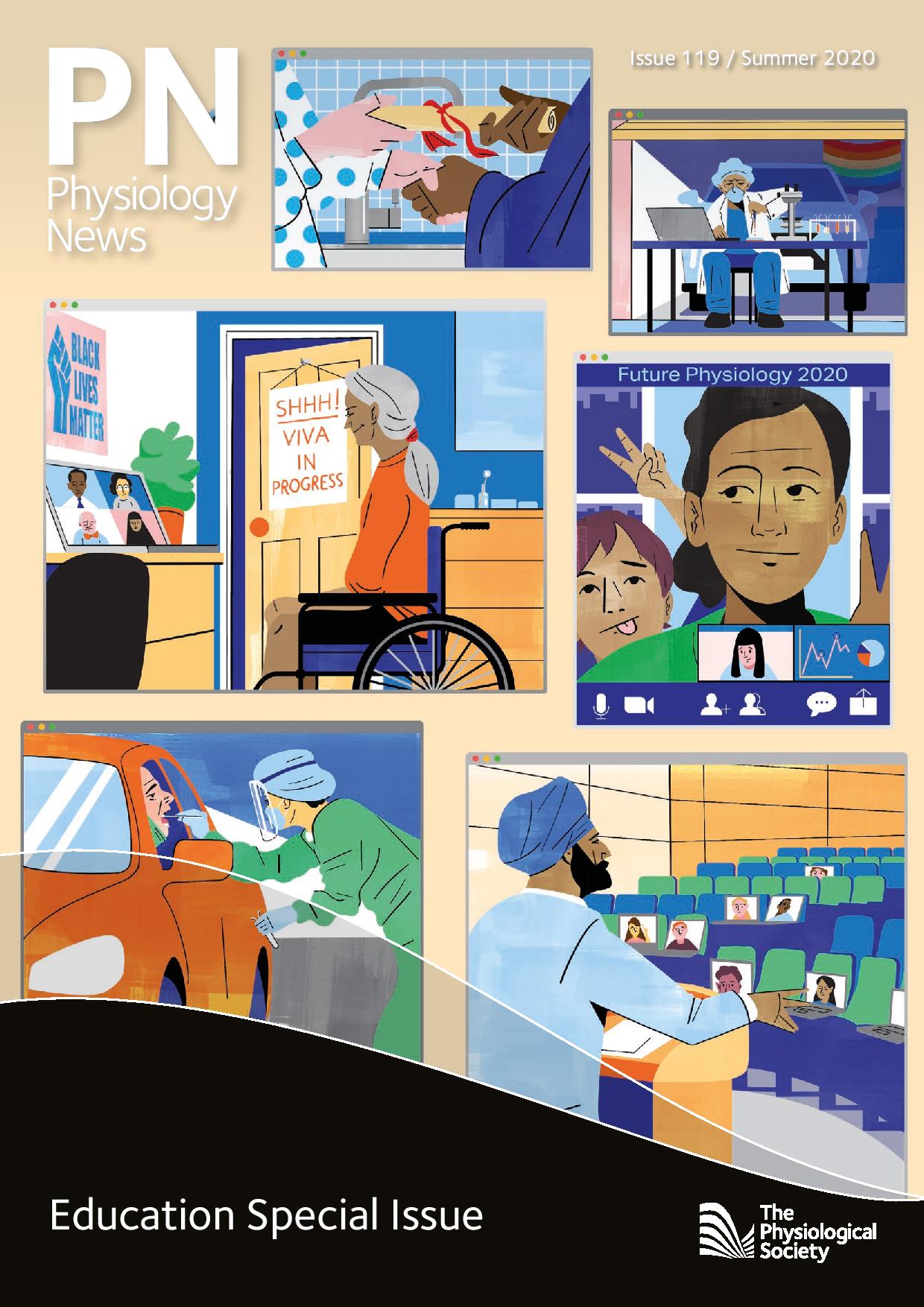
Physiology News Magazine
Obituary: Gerhard Giebisch (1927-2020)
Membership
Obituary: Gerhard Giebisch (1927-2020)
Membership
Robert Unwin, University College London, UK
https://doi.org/10.36866/pn.119.51
Professor Gerhard Giebisch, Sterling Professor Emeritus of Cellular and Molecular Physiology at Yale School of Medicine, died peacefully near his home in Connecticut on April 6th 2020 at the age of 93 years.
Gerhard was born in Vienna in 1927 and obtained his medical degree at the University of Vienna in 1951. He emigrated to the United States and took up a clinical internship in Milwaukee in 1952, which is also where he married his wife of over 50 years, Ilse Giebisch. They moved to New York where Gerhard gained a postdoctoral fellowship in the Department of Physiology at Cornell University Medical College with the distinguished renal physiologist Professor Robert Pitts, who had taken over from the celebrated Homer Smith. There, Gerhard acquired his abiding interest in renal physiology and published his early studies with Pitts on the renal excretion and volume of distribution of dextrans, the extrarenal response to acute respiratory acid-base changes, and the effect of adrenal steroids on bicarbonate reabsorption. Gerhard subsequently learned tubular micropuncture with Phyllis Bott, a technique that eventually underpinned his highly original work on potassium transport with his long standing collaborator and friend, Gerhard Malnic. Gerhard’s early micropuncture studies also included measurements of transepithelial voltage to better understand the driving forces for ion transport.
Gerhard’s academic career and stature progressed at Cornell and in 1968 he was appointed Professor and Chairman of Physiology at Yale School of Medicine, overseeing a critical period in its growth and development. Gerhard was appointed Sterling Professor, Yale University’s highest academic rank, in 1970 and in 1973 he stepped aside as department chairman to encourage and foster new talent and careers. This was typical of Gerhard and he continued to offer clear-sighted support during the department’s expansion and increasing reputation in physiology. With the opportunity to deepen his own research interests without too many administrative distractions, his laboratory flourished and became a much sought after destination for trainees in renal physiology. The studies conducted in his laboratory during this period have laid the foundations for much of our current understanding of potassium homeostasis.
Another eminent figure in renal physiology, Robert (Bob) Berliner, had become Dean of Medicine in 1973 and he and Gerhard became life-long friends and worked closely together throughout their time at Yale. The Department of Physiology changed its name to the Department of Cellular and Molecular Physiology in 1989, which preserved the independence of physiology during a time of change in which the creation of large amalgamated ‘Biomedical Departments’ was popular. But the new name also reflected the direction of physiological research that Gerhard had embraced, as he continued his pioneering research on renal potassium handling well beyond his retirement.
That Gerhard made important and lasting research contributions in renal physiology is undisputed, but almost as important was his impact on individuals. He directly mentored more than 75 postdoctoral fellows, many of whom went on to illustrious research careers of their own worldwide. For many, Gerhard was an inspirational figure and became a valued friend: colleagues were impressed by his scientific knowledge and acumen, and appreciated his thoughtful and generous nature. His understanding of people and unfaltering guidance, support and advice, ensured that all who worked with him soon became his devoted followers.
Gerhard was a stickler for clear, correct and well-written prose in his publications and would often present young fellows with a gift of The Elements of Style by Strunk & White and Homer Smith’s The Kidney; he would also ask Bob Berliner to proofread potential publications with a critical eye, which was often a painful lesson in good English – a common mistake would be the incorrect use of ‘tubule’, the noun, for ‘tubular’, the adjective. Moreover, Gerhard himself admired Hemingway’s style and liked short sentences, claiming that this suited the shorter attention span of many American readers!
Gerhard’s personal office was always open, providing us all with a wonderful source of physiological literature and the chance to encounter many leading physiologists from all over the world who would visit regularly for seminars and informal discussions. All this made for a fascinating, exciting and stimulating environment, and not forgetting the many international fellows, all with their own projects, yet working together. Another important legacy of Gerhard’s is his well-known textbook of renal physiology edited with the equally renowned Donald Seldin, The Kidney: Physiology and Pathophysiology. Referred to colloquially as ‘Seldin & Giebisch’, this book continues to be a valuable ‘go to’ reference source in renal physiology and nephrology.
Gerhard was elected to the American Academy of Arts & Sciences in 1983 and to the National Academy of Sciences in 1984. He was a founder member of the American Society of Nephrology (ASN), and served as President; he received numerous prestigious awards and honorary doctorates throughout his career. He became an Honorary Member of The Physiological Society in 1999 and gave the 2004 Bayliss-Starling Lecture. Gerhard lectured extensively and often wrote out his lectures in full to ensure clarity and pace, which was always appreciated.
Outside of science, Gerhard had a great passion for art, literature and music, especially opera, and he would travel regularly to the Metropolitan Opera in New York and encourage others to join him. He was an example to follow in almost every respect, as a scientist, a teacher, a diplomat, and above all a mentor. All this plus his gentle and wry sense of humour will be greatly missed.
Gerhard’s wife Ilse died in 2008 and he is survived by his two married children Christina and Robert, and four grandchildren.
Robert Unwin was a postdoctoral research fellow with Gerhard Giebisch from 1986 to 1989, supported on a Wellcome Trust Senior Clinical Research Fellowship.
